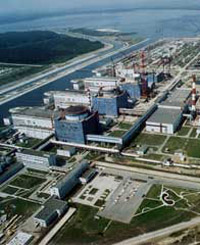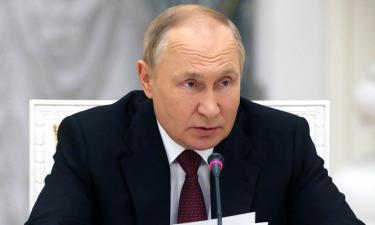Iranian nuclear power plant to be launched within one year
Moscow and Teheran yesterday brought to completion their discussion of deadlines for building the first energy unit of an atomic power plant Busher by the Russian experts. Mutual complaints and suspicions concerning the previous delays and other misunderstandings became a thing of the past.

The previously agreed upon deadlines will remain unchanged so that the power unit should be launched by September 2007 while the plant itself should be connected to the Iranian energy networks two months afterwards. These conditions are stated in the additional protocol signed yesterday, which was attached to the initial agreement of 1995.
Six months prior to launching the energy unit in March of 2007 Russia will supply Iran with 80 ton of nuclear fuel for the plant. Vremya Novostei reports that in three months the talks will be re-evaluated and perhaps the deadlines would be cut even further. This could happen during Sergey Kirienko’s visit to Iran, which is planned at the end of November.
The decision about the dates for the power plant’s completion became the final topic for the two-day talks with the Iranian vice president and head of the Iranian Atomic Energy Organization, Golam Reza Agazade, which ended in Moscow last night.
The head of Rosatom Sergey Kirienko, the president of Atomstroyeksport Sergey Shmatko and the secretary of Security Council Igor Ivanov were able to convince the Iranians that Russia strictly follows the agreement terms and that being impatient with the nuclear questions is not a wise move. In order to pressure the Russian side vice-president told the reporters that the Iranian government is capable of launching the plant Busher without Russia’s assistance.
Even so the Iranian nuclear energy’s future depends not only on the talks with Moscow but also on the nation’s success in convincing the West that its nuclear program assumes no militant agenda. The fourth meeting is being planned these days between the Foreign Policy and Security Chief of the European Union Javier Solana and his constant talks partner the secretary of Iranian National High Security Council Ali Laridzhani.
It was precisely Solana who in June delivered to Teheran the proposal of the “6” (Russia, USA, China, Great Britain, France and Germany) concerning the stabilization of the crisis around Iranian nuclear ambitions. They met twice in Brussels during the month of July in order to agree upon further actions but made no progress so far.
Yesterday the Washington Times newspaper citing the sources inside the George Bush administration reported that Teheran was close to completing the agreement about a temporary (up until 90 days) halt of the uranium enrichment, as was previously requested of Iran by the U.N resolution #1696.
This would allow the “6” to resume interrupted talks with the Iranian authorities. U.S. State Secretary Condoleezza Rice explained in the interview with the New York Times that the White House wants to grant Javier Solana additional time to complete his negotiations with the Iranian side. The secretary also added that she personally doubts that it would be of any use.
Vremya Novostei
Translated by Natalia Vysotskaya
Pravda.ru
Subscribe to Pravda.Ru Telegram channel, Facebook, RSS!




